BoltzGen、できがいいな……
30.10.2025 14:16 — 👍 1 🔁 0 💬 0 📌 0_machine
@machine-etal.bsky.social
Ph.D. / Protein Science / Apptainer (Singularity) おじさん / フォローはお気軽に🥳 / My posts and opinions are my own🙃
@machine-etal.bsky.social
Ph.D. / Protein Science / Apptainer (Singularity) おじさん / フォローはお気軽に🥳 / My posts and opinions are my own🙃
BoltzGen、できがいいな……
30.10.2025 14:16 — 👍 1 🔁 0 💬 0 📌 0OpenFold3-preview (OF3p) is out: a sneak peek of our AF3-based structure prediction model. Our aim for OF3 is full AF3-parity for every modality. We now believe we have a clear path towards this goal and are releasing OF3p to enable building in the OF3 ecosystem. More👇
28.10.2025 18:30 — 👍 122 🔁 41 💬 1 📌 3
Looks like OpenFold3 has been formally released in a public "preview". Not quite on parity with AlphaFold3 on a few benchmarks shown, in particular for antibody interactions. All info on the github link. I am sure we will hear more about this from the developers github.com/aqlaboratory...
28.10.2025 09:30 — 👍 50 🔁 20 💬 2 📌 0Now DSSP 4.5.6 and its python module are available on Homebrew. `brew install brewsci/bio/dssp`.
28.10.2025 05:48 — 👍 3 🔁 1 💬 0 📌 0
Our new preprint is out. Our group performed a comprehensive protein–protein complex prediction within 2,437 biosynthetic gene clusters. We predicted a total of 487,828 complexes for known BGCs, identifying 15,438 heteromeric interactions with an ipTM ≥ 0.6. (2/3)
www.biorxiv.org/content/10.1...
We train machine learning models on millions of proteins. But when it comes to making predictions, do we need them to understand all proteins at once? Often, we need an accurate model for the specific protein we are studying or designing. We address this with ProteinTTT arxiv.org/abs/2411.02109 1/🧵
23.10.2025 13:08 — 👍 65 🔁 25 💬 2 📌 0End-to-end protein design in the browser through evedesign. Generate and interactively explore designs in 2D/3D and export them as codon-optimized DNA. The underlying open source framework (released soon) is build to easily add new methods, more on that soon.
🌐 evedesign.bio

Biology is much more complicated than most non-biologists can imagine. And AI is not going to change this anytime soon.
blog.genesmindsmachines.com/p/we-still-c...

神曲すぎて泣いてる
17.10.2025 11:01 — 👍 0 🔁 0 💬 0 📌 0
We thank reviewer 2 for their constructive suggestions and have updated our manuscript accordingly
15.10.2025 22:42 — 👍 18 🔁 1 💬 1 📌 0
Cornix届いてました。これはエンドゲーム感あるねえ
14.10.2025 10:38 — 👍 1 🔁 0 💬 0 📌 0New job! Senior scientist in AI/ML at Takeda. The plan is to do some fun stuff with biomolecular foundation models
13.10.2025 20:59 — 👍 18 🔁 1 💬 2 📌 0Initial attempt at replicating in relion (parameters in next post). This is for Aca2-RNA, using a 100k subset of the 2D-classified particles (no prior 3D cleanup).
A 1-class ab initio in relion, then local refinement in relion (1.8deg searches+blush) gives a nominally 3.3Å map; 3.5 Å w/out blush.
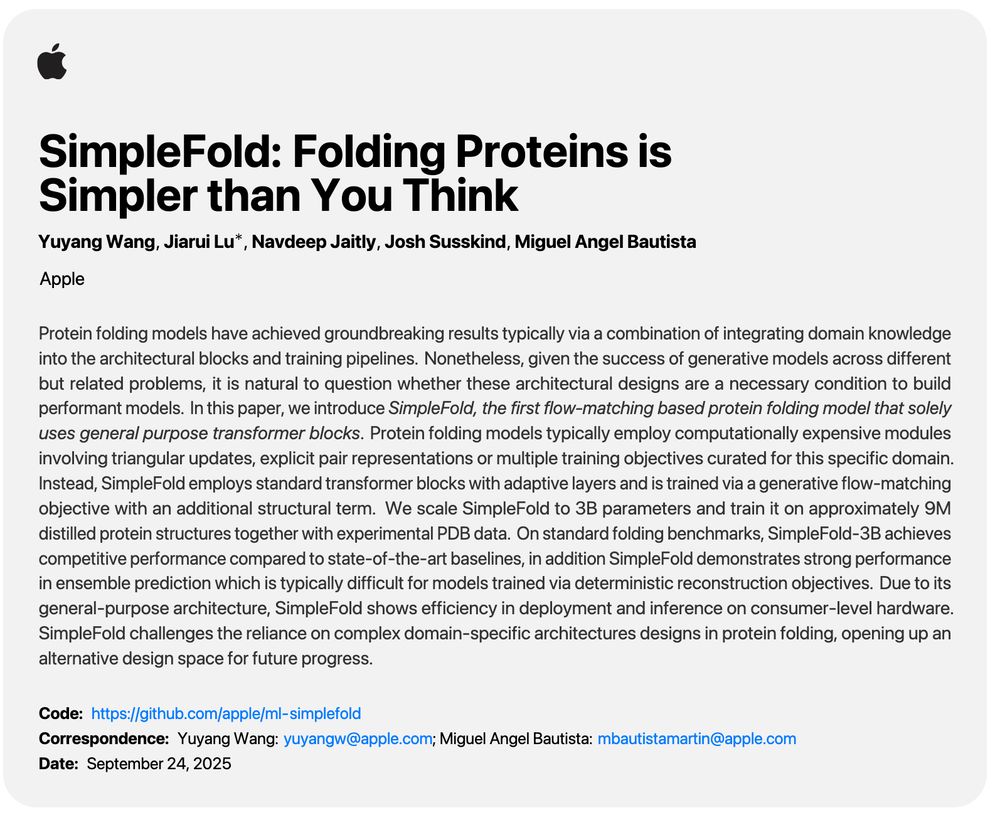
Apple now has a protein folding NN?...
arxiv.org/pdf/2509.18480

We are excited to share GPN-Star, a cost-effective, biologically grounded genomic language modeling framework that achieves state-of-the-art performance across a wide range of variant effect prediction tasks relevant to human genetics.
www.biorxiv.org/content/10.1...
(1/n)

pip install ipsae
from www.linkedin.com/in/ullah-sam...
www.youtube.com/watch?v=A5ph...
PyPI pypi.org/project/ipsae/
His github fork github.com/ullahsamee/I...
My github github.com/DunbrackLab/...
Paper www.biorxiv.org/content/10.1...
For designed protein binders www.biorxiv.org/content/10.1...

An analysis of scaling laws in paired antibody LMs, which mostly learn the composition of germline sequences. Authors conclude that an 650M parameter NN (the sweet spot for generalist PLMs) would require 5.5 M sequences, about ~3x what is publicly available today www.biorxiv.org/content/10.1...
08.09.2025 11:43 — 👍 4 🔁 1 💬 0 📌 0
Preprint: De-novo design of proteins that inhibit bacterial defenses
Our approach allows silencing defense systems of choice. We show how this approach enables programming of “untransformable” bacteria, and how it can enhance phage therapy applications
Congrats Jeremy Garb!
tinyurl.com/Syttt
🧵
We'll cover our latest work on low resolution applications, a run-through of our codebase, and tutorials of how to run ROCKET on your own data. Join if you're interested!! 🚀
02.09.2025 16:07 — 👍 9 🔁 3 💬 0 📌 2#structuralphylogenetics #strphy #3di
22.08.2025 12:20 — 👍 21 🔁 10 💬 0 📌 0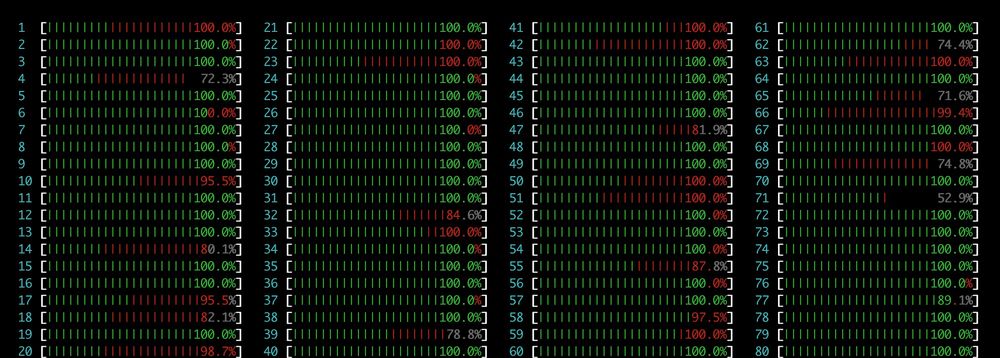

If you use Boltz1/2, BioEmu, Chai1, or other MSA-dependent models, you’re likely using our ColabFold server. Please be considerate! Avoid large submissions across many IPs instead generate the MSA locally. Our server is an old-timer from 2014 and can’t handle that load.
15.08.2025 17:48 — 👍 62 🔁 10 💬 3 📌 0
(1/7)
Training biomolecular foundation models shouldn't be so hard. And open-source structure prediction is important. So today we're releasing two software packages: AtomWorks and RosettaFold3 (RF3)
[https://www.biorxiv.org/content/10.1101/2025.08.14.670328v2](www.biorxiv.org/content/10.1...)
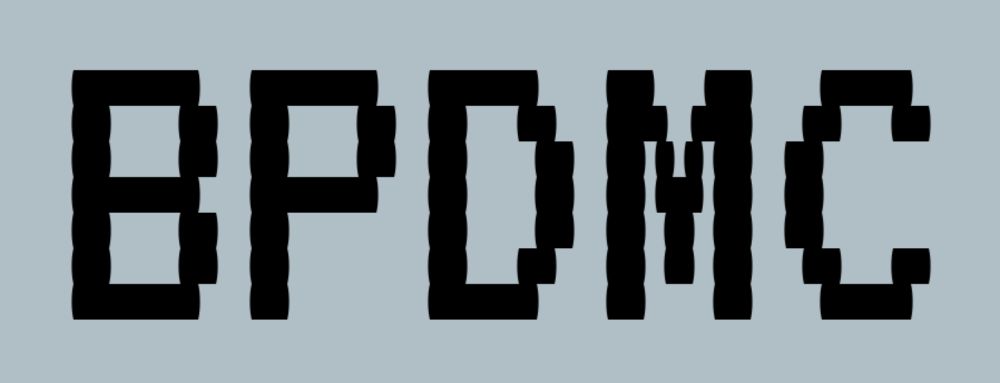
Fun fact: #bindcraft evolved from a binder design tutorial originally developed for BPDMC!
Come see @martinpacesa.bsky.social tonight at 7pm EDT in Room 181, Building 68, @mit.edu
"BindCraft: one-shot design of functional protein binders"
bpdmc.org

Thrilled to share this manuscript from my lab where we looked at how glycopolymers that compose the glycocalyx influence protein folding and protein-protein interactions via macromolecular crowding.
TLDR: The Glycocalyx stabilizes protein folding and PPIs
www.biorxiv.org/content/10.1...

Switching next to protein protein interactions, we used arguably my favorite protein A34F GB1 to demonstrate that these glycopolymers stabilize protein protein interactions in a similar fashion to protein folding, via chemical interactions.
13.08.2025 17:25 — 👍 7 🔁 3 💬 1 📌 0
表紙になってるこの二足歩行ロボはいつ出てくるんだと思ってる人は多かろう
12.08.2025 04:52 — 👍 3 🔁 2 💬 0 📌 0
An nf-core framework for the systematic comparison of alternative modeling tools: the multiple sequence alignment case study. #nfCore #ToolsComparison #MSA #NARgenomicsAndBioinformatics #Bioinformatics 🧬 🖥️
academic.oup.com/nargab/artic...

『プロジェクト・ヘイル・メアリー』電子版、なんかしらんが半額+さらに50%還元で実質タダみたいな感じなので、三連休は一歩も部屋から出ずにこれ読破したらいいよ
amzn.to/41BwdDl
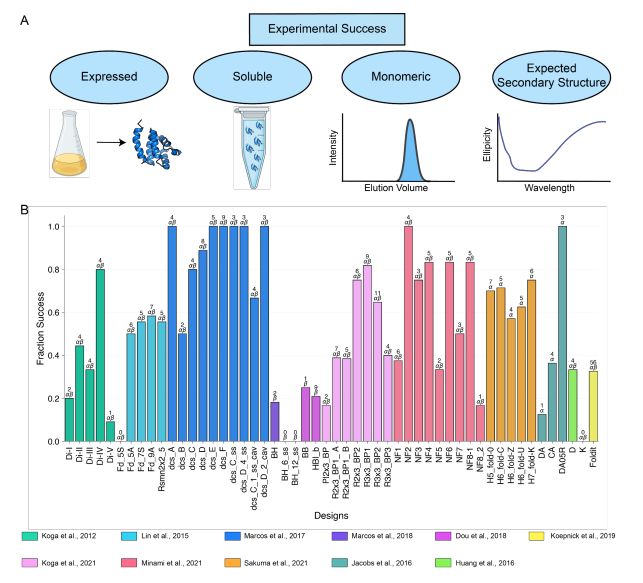



A benchmark dataset of 614 experimentally characterized de novo designed monomers from 11 different design studies shows that:
- deep learning structural metrics only weakly predict success
- The score distribution is different for different types of structures
@grocklin.bsky.social
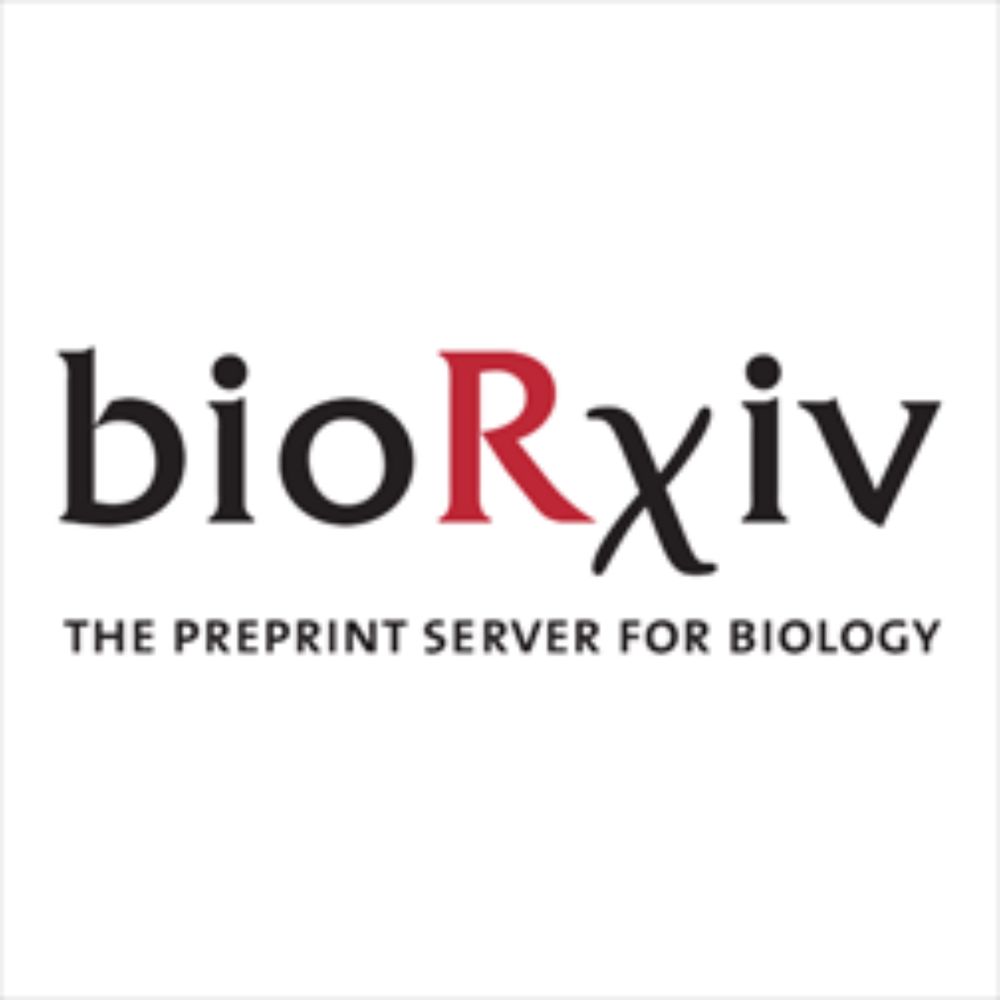
Stoked to finally have a preprint out for Phold, our tool that uses protein structural information to enhance phage genome annotation #phagesky 1/n
www.biorxiv.org/content/10.1...